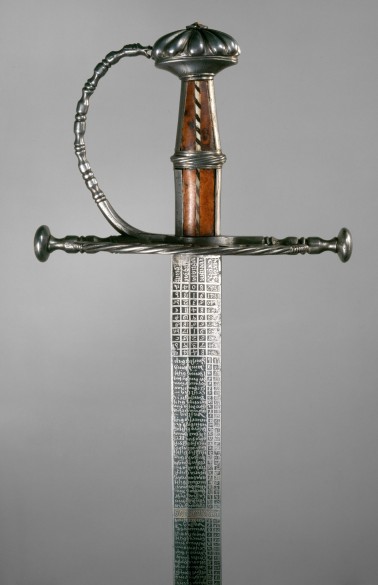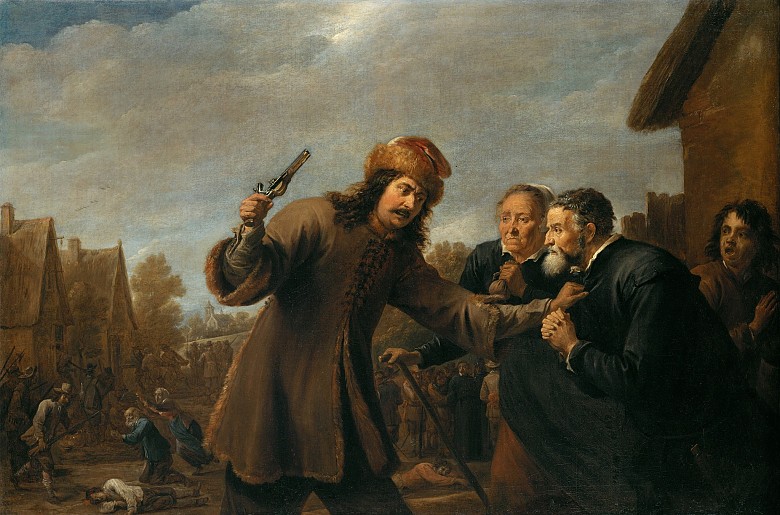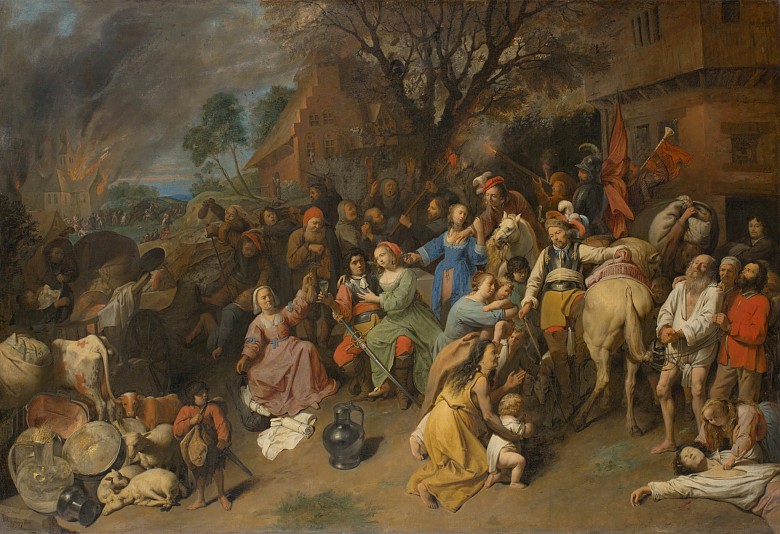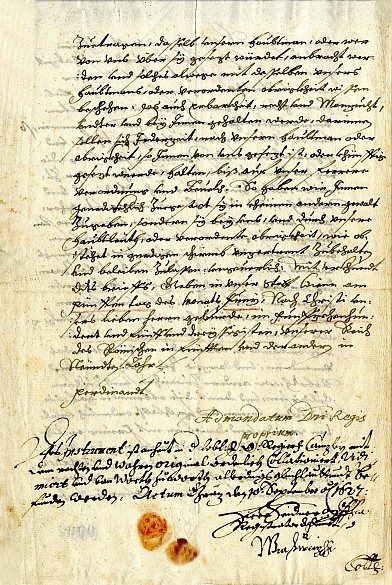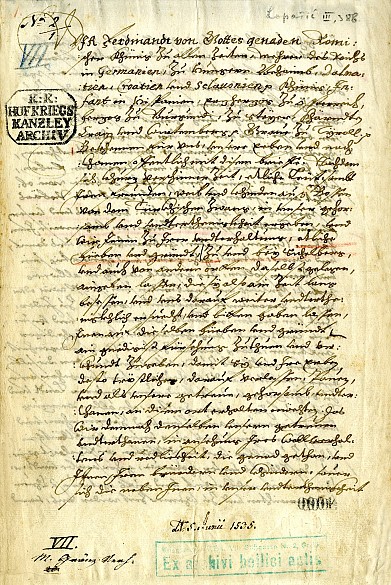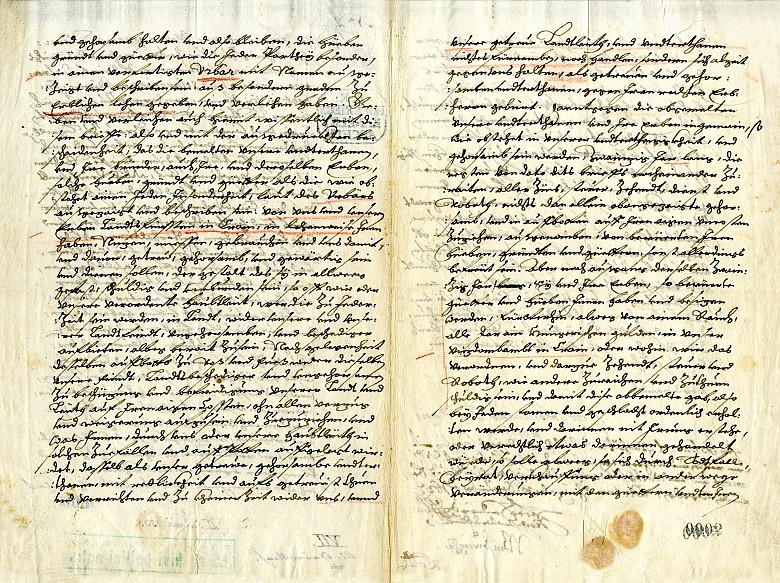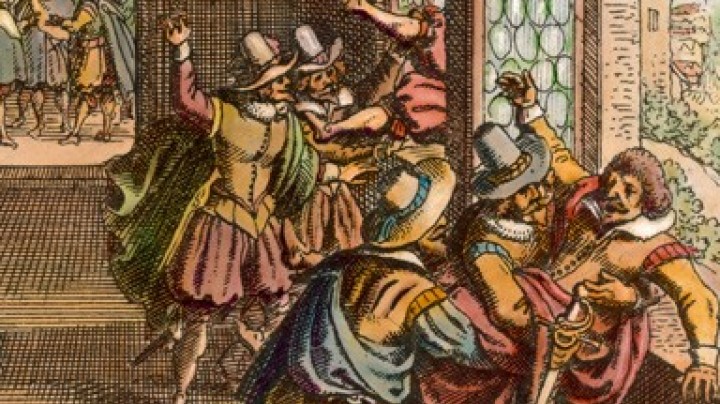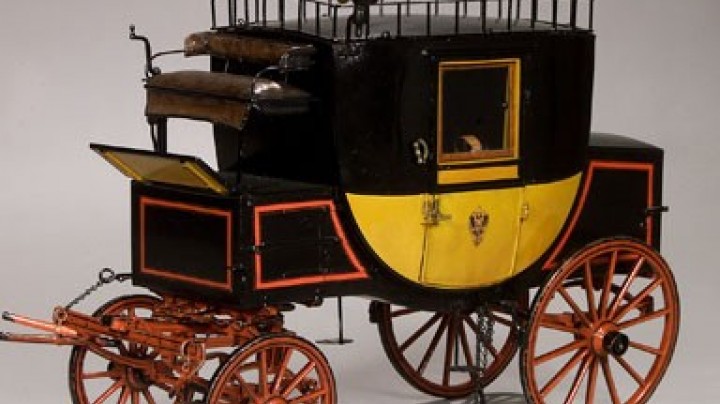Peasants on border patrol
‘Soldier-peasants’ in border areas were equipped not only with agricultural implements to farm the land but also weapons to defend their country.
During the Turkish War, many of the Eastern parts of the monarchy were devastated, and in south-east Slavonia the economic network and infrastructure suffered total collapse. No longer able to finance any defensive actions, the Croats asked King Ferdinand I for help, thus laying the foundations for the special status of these border-dwellers-to-be.
Ferdinand made the Inner Austrian Estates responsible for the defence and administration of the border regions, thus removing the influence of the Croatian and Hungarian Estates from this sphere. The devastated areas were to be repopulated in order to ensure effective protection of the frontiers. Although some mercenary troops were deployed there, they were sorely needed elsewhere in times of war and financial means were scant. A number of privileges and other special rights were offered as incentives for people to settle in these crisis-ridden regions. Plots of land were put at the new settlers’ disposal, and for a specified period of time they did not have to pay any dues or taxes to their feudal overlord. In return, they had to render unpaid military service. Thus, the Habsburgs were able to ensure that troops were in permanent readiness for operations in these regions. The first community of these soldier-peasants (Wehrbauern) was established in the Croatian region of Sichelberg (in Croatian: Žumberak) in 1535; these particular settlers were called Uskoks (Uskoci) – Vlachs who had emigrated from the Ottoman Empire − and took a leading role among the soldier-peasants, successfully demanding permanent rather than temporary exemption from taxes. The peasants’ property rights, along with their independence from the feudal system, encouraged them to safeguard the military frontier, and their special autonomous status and military duty, which they regarded as a privilege rather than as a burden, attracted many new settlers. As a consequence the border regions came to have a higher than average population density.
This combination of independence and military service endowed these soldier-peasants with a special social status which was not achieved by the majority of ‘ordinary’ peasants until the abolition of serfdom in 1848.
